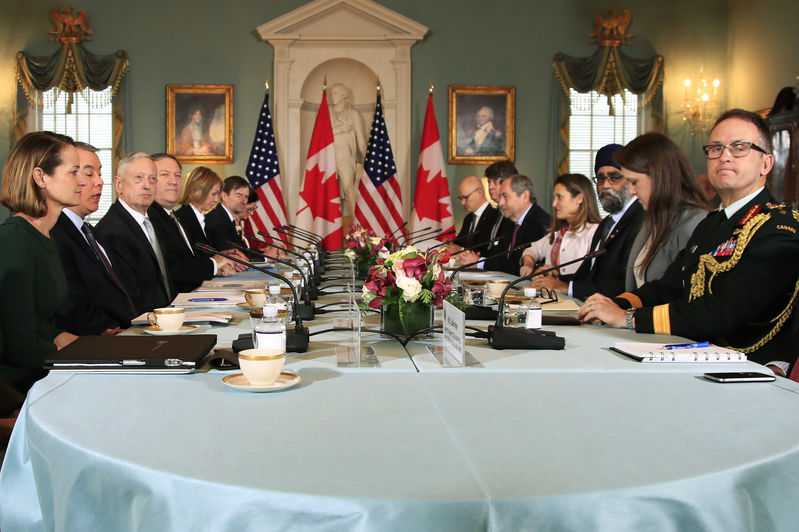Pompeo urges China to release two Canadians over Huawei row
15 December, 2018

The United States and Canada moved Friday to ease tensions between them over the case of a top Chinese technology executive whose arrest by Canadian authorities has sparked a diplomatic crisis entangling the three countries.
Meng Wanzhou, the chief financial officer of Chinese telecommunications giant Huawei, was arrested in Canada on Dec. 1 at the request of the United States, which wants her extradited to face charges that she and her company misled banks about the company’s business dealings in Iran.
China detained two Canadians this week in apparent retaliation for Meng’s detention.
The case has set off a three-way diplomatic spat in which Canada is stuck in the middle. The dispute threatens to complicate ties between the U.S. and Canada, which were already testy. And President Donald Trump complicated matters by saying he might intervene in the case if would help clinch a U.S. trade agreement with China — much to the consternation of Canadian officials.
In talks at the State Department on Friday, the U.S. and Canadian foreign and defense ministers put on a united front, speaking of historically deep ties and cooperation on issues such as Iraq, Ukraine, Syria and Russia.
U.S. Secretary of State Mike Pompeo called for China to release the Canadians, saying their detention was “unlawful” and “unacceptable” in comments aimed at calming concerns in Ottawa that the Trump administration might abandon it in pursuit of a deal with Beijing.
He also tried to downplay Trump’s suggestion that the Meng case could be connected to U.S.-China trade negotiations.
“The unlawful detention of two Canadian citizens is unacceptable. They ought to be returned,’ Pompeo told reporters at a joint news conference after the talks he and Defense Secretary Jim Mattis hosted with Canada’s Foreign Minister Chrystia Freeland and Defense Minister Harjit Sajjan. “We ask all nations of the world to treat other citizens properly, and the detention of these two Canadian citizens in China ought to end.”
Trump’s comment on Meng alarmed many in Canada who saw it as evidence the case has been politicized and that the U.S. is loosening its commitment to the rule of law and independent judiciary.
Trump has previously attacked Canada and Prime Minister Justin Trudeau over trade, and his suggestion that he could intervene in the Meng case contradicted Canadian officials who said the arrest was not political.
Freeland made clear several times in Friday’s news conference that Canada is a “rule of law” nation and expects others, especially the United States, to uphold that standard.
“Canada follows the rule of law. Canada follows rules,” she said. “It is also very important for Canada that extradition agreements are not used for political purposes.”
On Friday, Canada’s Global Affairs department said it had just received consular access to Michael Kovrig, one of the Canadians detained in China. They continue to press for access to Michael Spavor. Both were arrested Monday.
Canada is increasingly uneasy about its once rock-solid relationship with the United States.
In years past, the U.S. would have been counted on to defend Canada when it came under attack and other countries would know the U.S. had Canada’s back. That is no longer a certainty, particularly after Trump’s jabs at Trudeau and persistent complaints about the Canadian government’s policies.
In August, Saudi Arabia expelled Canada’s ambassador to the kingdom and withdrew its own ambassador after Canada’s foreign ministry tweeted support for an arrested Saudi activist. The Saudis also sold Canadian investments and ordered their citizens studying in Canada to leave.
No country, including the U.S., spoke out publicly in support of Canada, and the Trump administration has been steadfast in its support for Saudi Arabia. American support for the kingdom has come under intense scrutiny after U.S. intelligence officials concluded Saudi Crown Prince Mohammed bin Salman must have at least known of the plot to kill journalist Jamal Khashoggi at the Saudi embassy in Turkey.
Now the stakes are much higher. Canada is one of the few countries in the world unabashedly speaking out in defense of human rights and the international rule of law. And Canada is looking to Chinese trade as increasingly important because of Trump’s trade threats.
